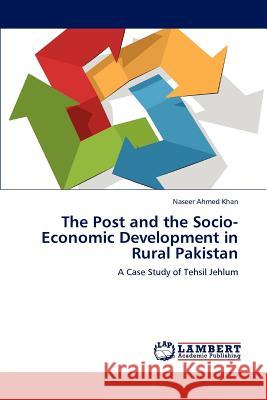The Post and the Socio-Economic Development in Rural Pakistan » książka
The Post and the Socio-Economic Development in Rural Pakistan
ISBN-13: 9783848484317 / Angielski / Miękka / 2012 / 276 str.
This book is based on the first ever research aimed at the evaluation of the effects of postal services on the socio-economic development in the rural areas of Pakistan which comprise more than 70% of the overall population of the country. The relationships between different social institutions vis-a-vis the social structure of the local community is the main focus of the research. The research topic of the changing role of post office in the socio-economic development of Pakistan is a thought provoking subject. The objective topic not only provides the academic anthropological information regarding different aspects of development, but also helps unveiling many layers of subject which are of great importance. The relationships between different social institutions vis-a-vis the social structure of the local community carry considerable weight as far as its academic contribution in the development process envisaged in 'Economic Anthropology' is concerned. It also provides an avenue for the future researchers who may desire to play their role in the meaningful contribution in academic spheres of the anthropological knowledge."
This book is based on the first ever research aimed at the evaluation of the effects of postal services on the socio-economic development in the rural areas of Pakistan which comprise more than 70% of the overall population of the country. The relationships between different social institutions vis-à-vis the social structure of the local community is the main focus of the research. The research topic of the changing role of post office in the socio-economic development of Pakistan is a thought provoking subject. The objective topic not only provides the academic anthropological information regarding different aspects of development, but also helps unveiling many layers of subject which are of great importance. The relationships between different social institutions vis-à-vis the social structure of the local community carry considerable weight as far as its academic contribution in the development process envisaged in Economic Anthropology is concerned. It also provides an avenue for the future researchers who may desire to play their role in the meaningful contribution in academic spheres of the anthropological knowledge.











